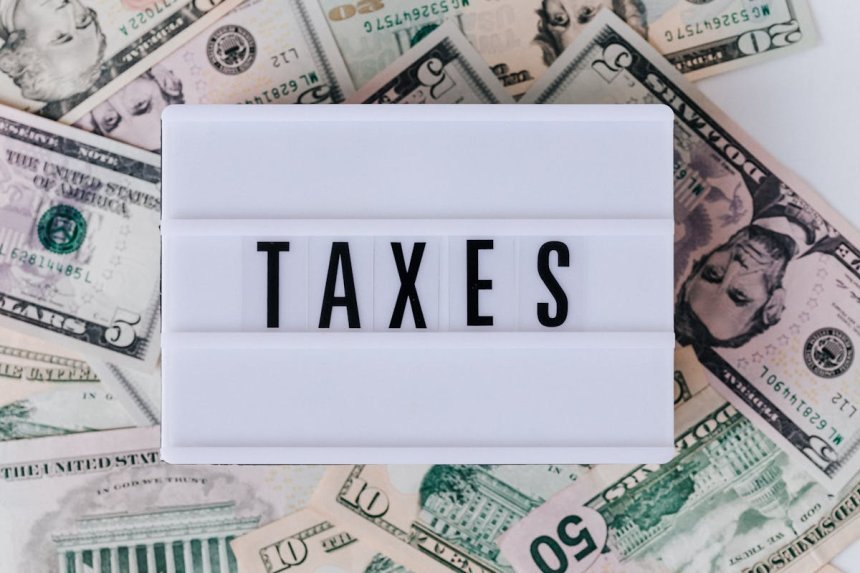Why Billionaires Pay Less Tax Than You—The Legal Loopholes They Don’t Want You to Know in 2025
This article pulls back the velvet curtain and shows exactly how the richest people in America avoid taxes without breaking a single law. We're talking about secret-sauce strategies, dusty IRS code tricks, and financial gymnastics that most people don’t even know exist.

Ready for a gut-punch stat? In 2025, some American billionaires are paying zero federal income tax—legally. Yes, you read that right. While a middle-class teacher in Ohio forks over 22% of their paycheck, a tech tycoon worth $10 billion might pay less than your cable bill in taxes.
Sound unfair? Maybe. Illegal? Nope.
This article pulls back the velvet curtain and shows exactly how the richest people in America avoid taxes without breaking a single law. We're talking about secret-sauce strategies, dusty IRS code tricks, and financial gymnastics that most people don’t even know exist.
Let’s get into it—and yeah, prepare to feel a little angry.
The Salary Trap—Why Billionaires Don’t Take Paychecks

Here’s the uncomfortable truth: taxes are for income. But billionaires don’t live off income—they live off wealth.
Translation: They don’t get rich from a salary. They get rich by owning stuff.
Jeff Bezos? Elon Musk? They take tiny salaries (like $1 a year), so there’s almost no taxable income. Instead, they get money from stocks going up—without actually selling them.
That’s the trick. Until you sell an asset, it’s not taxed. So while their stock value skyrockets, they just sit back, borrow money against it (we’ll get to that), and avoid the IRS spotlight completely.
Buy, Borrow, Die—The Billionaire Playbook That Breaks the System
Step 1: Buy Assets That Grow (Not Cash)
Instead of taking cash (which gets taxed), billionaires buy things that gain value over time. Think:
- Company shares
- Real estate
- Art
- Cryptocurrencies
- Even sports teams
They don’t just buy stuff—they buy leverage.
Step 2: Use assets as collateral for a loan (tax-free cash)
Here’s where it gets spicy.
Let’s say a billionaire owns $100 million in stocks. Rather than selling and paying tax, they go to a private bank and say:
“Hey, lend me $50 million and use my stocks as collateral.”
Boom. They get tax-free money to buy houses, planes, yachts—whatever they want. It's technically a loan, not income, so Uncle Sam can’t touch it.
They only pay a little interest, which they often write off anyway. Genius? Kinda. Evil? Depends on who’s asking.
Step 3: Die (Yep, That’s Part of the Plan)
When someone dies, all their assets get something called a “step-up in basis.” That means the value of the asset resets to current market price—and any unrealized gains vanish into thin air.
So if a billionaire bought a building for $10 million, and it’s worth $100 million when they die, the $90 million gain? Poof. No capital gains tax.
Their heirs inherit it tax-free.
Let that sink in.
The Power of Philanthropy—Charity or Loophole?
Donor-Advised Funds (DAFs): The Legal Tax Shield
Ever wonder why billionaires suddenly start “giving back” through big foundations?
It’s not just generosity—it’s strategy.
When they donate to a Donor-Advised Fund (DAF), they get a huge tax break right away. But guess what? The money doesn’t have to go to an actual charity anytime soon. It can just sit there, invested, for years.
They control the fund. They name it after their dog. And technically, it’s not theirs anymore—so the IRS backs off.
Nice little loophole, huh?
Foundations That Double as Family Banks
Private foundations are another goldmine. These are nonprofit orgs that billionaires fund, run, and often pay their family members to “manage.”
Example: A billionaire donates $50 million to their own foundation. That lowers their tax bill. Then they hire their daughter as the foundation’s $400k/year “director.” Totally legal.
Charity? Sort of. Tax strategy? Oh, absolutely.
Real Estate Games—The Magic of Depreciation
Ah, real estate—the old-school moneymaker that still bends tax laws like a wet noodle.
Here’s how it works:
Billionaires buy massive buildings (hotels, office parks, etc.). Even though these buildings usually gain value, the IRS lets them claim “depreciation”—as if the building is losing value every year.
That depreciation can be used to offset other income, wiping out tax bills completely.
They’ll also use 1031 exchanges—another loophole gem. This lets them sell a property and buy another without paying taxes on the profit. It’s like tax hide-and-seek, and they never get caught.
Offshore Accounts Aren’t Just for Movies—They’re Still a Thing
You’ve probably heard about secret accounts in the Cayman Islands or Switzerland. That stuff still happens—but it's cleaner now.
The super-rich set up shell companies and trusts in low-tax countries. These entities “own” the assets, not the individual. That puts a layer between the billionaire and their money.
Some of this is legal. Some of it’s shady. Most of it? Complicated enough that the IRS doesn’t even try unless you really mess up.
Lobbyists & Loopholes—Why The Rules Never Change
Let’s be honest—many billionaires aren’t just playing the system. They helped write it.
They fund political campaigns. They hire armies of lobbyists. They sit on advisory boards that influence tax policy.
So when you ask why the tax code has so many loopholes, the real answer might be sitting on a yacht in the Caribbean.
It’s a Rigged Game—And You’re Not Invited
Billionaires don’t avoid taxes because they’re smarter. They avoid taxes because the system lets them—and because they can afford the $1,500-an-hour accountants and lawyers who know all the hidden doors.
The average American? They’re stuck filing W-2s and praying for a refund. Meanwhile, billionaires are borrowing tax-free millions to buy private jets while writing off their family office as a “business expense.” It’s not fair. It’s not even hidden. It’s just legal.
Share
What's Your Reaction?
 Like
0
Like
0
 Dislike
0
Dislike
0
 Love
0
Love
0
 Funny
0
Funny
0
 Angry
0
Angry
0
 Sad
0
Sad
0
 Wow
0
Wow
0












